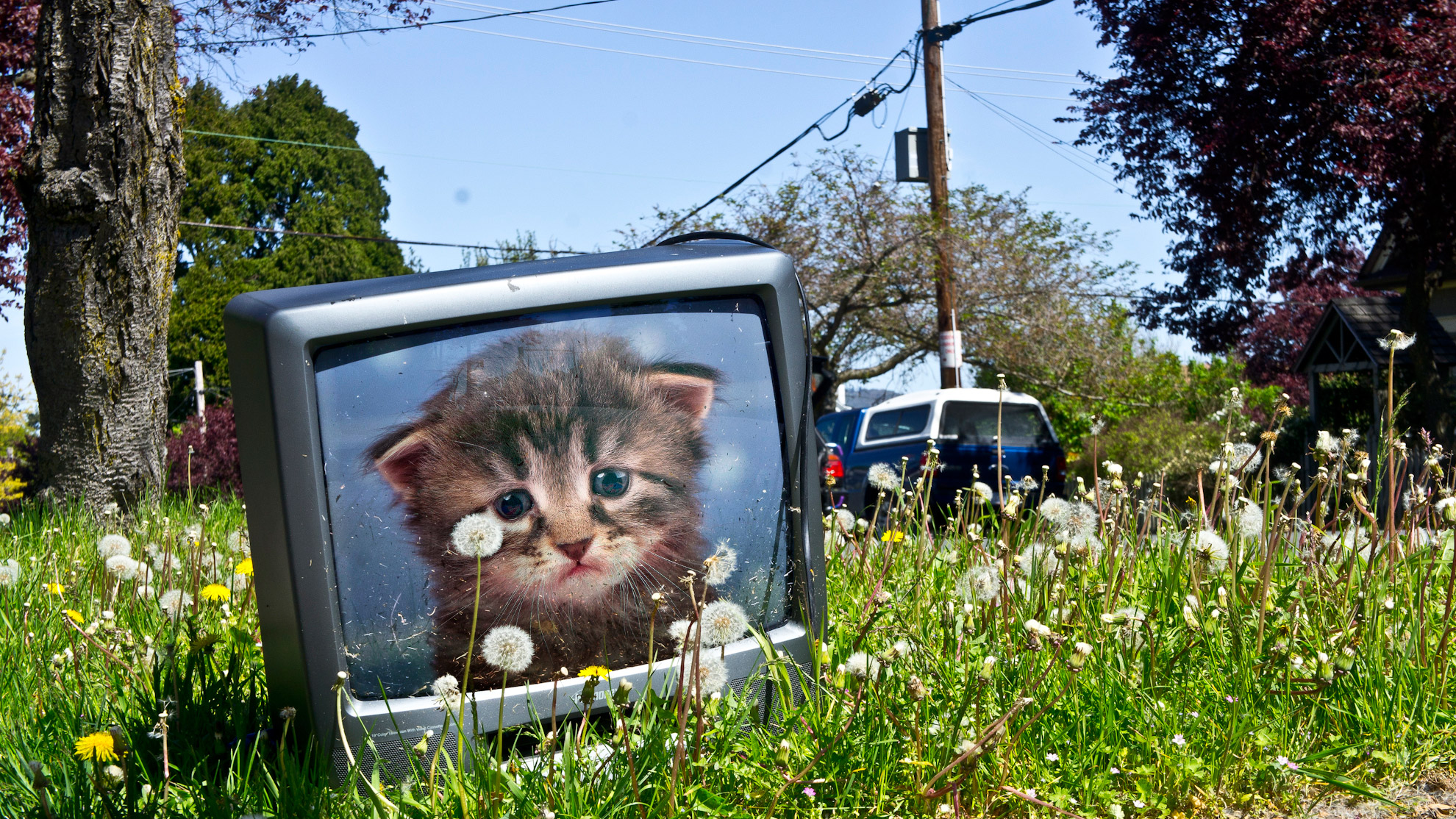Send your question to Umbra!
Q. My environmentally apathetic grandparents dumped an old cathode ray TV on the edge of their property. It’s sad because they live right next to a beautiful wildlife reserve and ponds. I know CRTVs have lead, mercury, and other nasty stuff. What should I do to remedy the situation?
Taylor P.
Knoxville, Tenn.
A. Dearest Taylor,
Environmentally apathetic? Heavens, dumping a box filled with eight pounds of lead on the edge of a wildlife preserve almost qualifies as environmentally homicidal in my book. But let’s assume Gramps and Granny didn’t understand that their old-school cathode ray television poses such a risk to the planet. In that case, Taylor, you’re in position to enlighten them.
Call your grandparents right now — go ahead, we’ll wait — and set up a visit. Over coffee, gently bring the conversation around to that time bomb out back. In these situations, I find the non-confrontational approach works best. Instead of “How could you poison the ducks!?,” try “I was just reading a fascinating article about old TVs. Did you know they contain toxic waste that can contaminate groundwater? Isn’t that awful?” I hope they express both shock and the desire to properly dispose of their castoff TV immediately.
If they do, you can tell them that luckily, your Household Hazardous Waste Department accepts CRTVs, as does a nearby electronics recycling center (need more options? Search here). There, the toxic components can be dealt with safely.
Now, lest you think this is a perfect solution, you should know that recyclers are drowning in mountains of discarded TV and computer monitors these days, with some forced to dump the excess for lack of demand for new cathode rays. I’d call your local facilities and ask what they’re doing with their CRTVs to be sure you’re not taking that old set out of the frying pan and into the fire.
And if your grandparents somehow fail to come around? If they don’t care about causing health problems for themselves and their neighbors and harming the local wildlife? Taylor, go get that TV and recycle it yourself. I have to believe that not even the coldest-hearted of grandparents actively want to pollute their yard with hazardous waste — much more likely that they just don’t want to deal with the hassle. Take control: You’ll win Grandchild of the Month and Eco-Citizen of the Month in one fell swoop.
Trashfully,
Umbra
Q. I already have reusable cloth grocery bags. But while I buy mostly unpackaged produce, I put it into individual plastic bags for containment. Is there a way I can buy produce without bagging each item? I realize the obvious answer is to buy food at a farmers market, but that isn’t as possible during the winter months. Any ideas?
Nick F.
Spokane, Wash.
A. Dearest Nick,
I do indeed have an idea, one so obvious it may have escaped notice: Just buy the produce loose. After all, there’s no law requiring a separate plastic bag for every cucumber or butternut squash. Free your veggies, Nick, and free your mind!
Of course, this doesn’t work so well when you’re buying, say, a pound of chestnuts. In that case, I point you to reusable produce bags; just tuck them into your grocery bags and you’ll be ready when the urge for bulk green beans strikes.
I must warn you, though, that recent studies have linked reusable grocery bags to a spike in foodborne illnesses like E. coli. As disgusting as that sounds, there’s no need to panic. Just be diligent about washing both your bags and your produce, and you’ll be just fine.
Meshily,
Umbra



